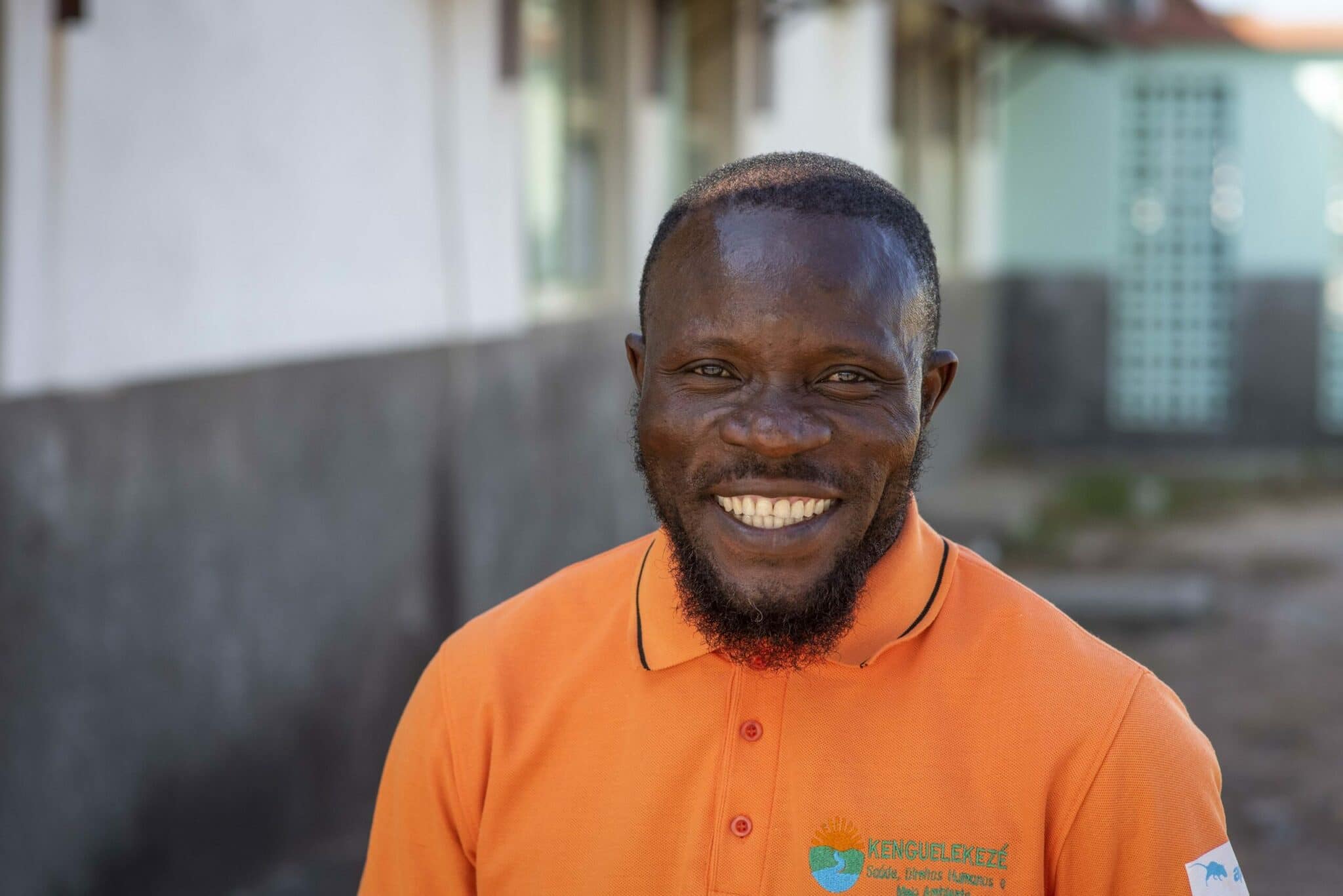Partner: Feliciano
Community health worker fights TB stigma and encourages adherence to treatment in patients.
“My name is Feliciano Petruchel and I am a Community Health Worker with Kenguelekezé and APOPO, who are collaborating to increase diagnosis and treatment for tuberculosis (TB) patients. Kenguelekezé means “sunrise” in the local language, and the organization focuses on health, human rights, and saving the environment which fits perfectly alongside APOPO’s work. I have many years of experience working actively in the fight against TB in Mozambique.
A typical day for me starts early in the clinic, where I carry out desensitization of TB by answering questions from presumptive patients in the clinic, often using role play scenarios to get my point across. TB is strongly associated with coughing, but I share that TB can develop in your bones, in your spine, in many places around your body other than your lungs. The most common form is pulmonary TB – the cough is typical, deep and it lasts for weeks. I offer TB screening for people with a cough in the waiting area and patients waiting in the lab queue. It is from here we tend to find new patients. I help the nurse to register patients in the book that tested positive, and also help with medication dispensing. Lucky for these clinics APOPO rechecks the sputum samples and catches patients that would have gone undiagnosed by the clinic. This means an additional 40% of patients get access to life-saving medicine. We hand out medicine that will last the patient a week or two before they have to come back for more.
Next, I go into the community to support patients that are already undergoing treatment; those that live too far or cannot reach the clinic easily for follow up testing or to get their medication. During my visits, I encourage and motivate them to finish the full course of medication. Often it is hard for patients to follow through the treatment because not only does it get tedious to take pills every day; but they lose motivation, and they think they can stop when they start feeling better. My job is to get them to stay the course. After two months of treatment, most people do not show signs of TB, but they must continue the medication, so that they do not develop a resistance to treatment and the bacteria lies dormant until it flares up again. If a patient with regular TB follows the full treatment, in 6 months to a year they will be cured of TB.
I first learned about the African giant pouched rats when they were used to detect landmines in a clearance project in Gaza province. My home was not far from the mine action office of the district, so I was curious and visited APOPO’s office. Before the mine action project, it was difficult to live in that location. We knew we could not go in many areas. The cattle could not graze freely and were limited to specific areas making overgrazing a real problem. As a cattle herder trying to find greener pastures, my uncle stepped on a landmine (about 10 years ago) he was only 30 at that time. We we were lucky he survived. Landmines cause lots of pain and problems, we were afraid to travel, we all know someone who had lost a limb, or were more seriously injured. We knew there were mines, but no one knew where they were located or how to avoid them. It was scary because we would never know, even for farming you could work your plot of land for years, but one day, you could step on a landmine.
The detection rats are amazing, both for their ability to detect landmines and find additional cases of tuberculosis with their amazing sense of smell. I admit, I too saw them in a bad light in the past. But after seeing them in action first detecting landmines and now seeing how quickly they find TB, helping APOPO identify new patients and getting them on treatment; I see them in a new light. Every rat indication is confirmed by APOPO’s lab and still it is faster than local clinics. They are doing such a fantastic job, finding new patients who I can then support during treatment and together we can work towards ending TB in Mozambique.
In the future, I would like to see the HeroRATs detect other diseases. People need to know more about APOPO’s amazing work and I believe the rats can do so much more given the chance.”


